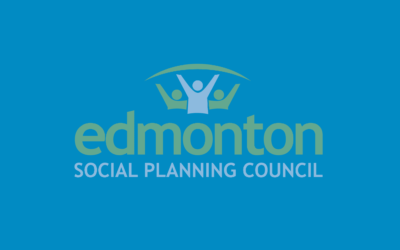fACT Sheet: What Are the Benefits of Early Learning and Care?

Introduction
Early learning and care refers to the environments where young children who have not yet entered kindergarten spend a portion of their day without their parents. Also known as daycare or child care, early learning and care includes licensed child care centres, early education programs, preschools, and family day homes.
Early learning and care is seen as a necessity by some and a privilege by others. The federal government envisions a “system” of early learning and care that is high quality, affordable, accessible, inclusive, and flexible. The government intends to increase its financial support toward child care and to negotiate with provincial governments and territories on what a system of child care might look like for each. So far, eight provinces and territories have reached agreements with the federal government. Alberta is not yet among them.
But what, specifically, are the benefits of high quality early learning and care for young children, families, and society?
Are There Benefits for Children?
Studies show that centre-based, high quality early learning and care can have positive effects on children’s cognitive, emotional, and social development. In some cases, the impacts are long-term and far-reaching. In one well-controlled study, for example, at-risk children in a high quality preschool program showed a variety of long-term advantages over a comparison group, including better educational achievement, better behaviour in school, better employment opportunities as adults, and less involvement with the legal system. Some of these effects remained at 40 years of age! Not all outcomes are consistent across studies though, which we might expect when we consider that early learning and care programs vary widely in the children they serve and the approaches they use. Nevertheless, findings are generally positive. At-risk children tend to show greater gains than other children, but in many studies all categories of children show gains. Moreover, children typically experience greater benefits when they are in high quality programs; for example, programs with well-qualified early childhood educators and lower child-to-staff ratios have greater positive impacts.
Are there benefits for children? Yes, children can benefit from early learning and care. If Albertans want as many children to benefit as possible, then early learning and care programs must be high quality.
Are There Benefits for Families?
Early learning and care has positive effects on families. For parents, especially mothers of young children, early learning and care allows parents to engage more fully in the workforce. Studies have found that the availability of quality, affordable early learning and care can lead to increases in women’s employment and income. For example, researchers cite increased participation of women in the labour force as one of the main achievements of Quebec’s system of early learning and care. Improving access to early learning and care can also lead to a reduction in social and economic equity gaps. Child care remains a barrier to paid work and the income it provides, which disproportionately impacts lower-income families and particularly lone parents. Affordable quality child care is a game changer for reducing and eliminating poverty, in part because it provides marginalized families with greater access to employment and educational opportunities.
Early learning and care also impacts quality of life for families. Many parents, in particular those with precarious jobs and incomes, experience intense pressure because they lack child care. Without access to suitable child care, parents face challenges maintaining meaningful employment, workplace productivity, financial stability, and overall wellness. In addition, high quality early learning and care that meets the needs of families can lead to reduced parental stress.
Are there benefits for families? Yes, families can benefit from early learning and care. If Albertans want as many families as possible to benefit, early learning and care must be available and affordable for all who want it.
Are There Benefits for Society?
If high quality early learning and care is good for children and for families, then it is bound to be good for communities and society. Nevertheless, high quality early learning and care costs money. Can Albertans afford it?
Most analyses of the economic effects of early learning and care show that the benefits—short term and long-term—outweigh costs. The Conference Board of Canada has estimated a return of $1.67 to $5.83 for every dollar invested in a system of early learning and care. According to another economic study, Quebec’s low-cost, universally available system of early learning and care more than pays for itself, mostly as a result of women’s increased participation in the workforce and, therefore, higher taxes paid to governments. The Centre for the Future of Work estimates benefits of approximately $17 billion to $29 billion per year in 10 years from implementing a universal system of early learning and care across the country. These benefits would come from expanded economic activity and tax revenues—the estimate does not include the long-term benefits to children who receive high quality early learning and care.
Are there benefits for society? Not only is early learning and care the smart thing to do for young children and their families, it is the smart thing to do for the economy!
Who Benefits?
What would a system of early learning and care that is high in quality, affordable, accessible, inclusive, and flexible mean for Edmontonians? It would mean everything to:
- The young family that is trying to save money for a mortgage but cannot afford to do so as long as they have to pay for child care that costs as much as university tuition.
- The single father who wants to upgrade his skills but has no good way to provide care for his child while attending classes.
- The young immigrant family that struggles to make ends meet because the cost of barely adequate housing consumes more than half their income.
- The single mother who needs to return to school so that she has options other than income support.
- The child with physical disabilities who is turned away by most child care centres because there isn’t the capacity to accommodate their disabilities.
- Children in all areas of the city who would benefit from access to learning environments with well-prepared, well-supported early childhood educators who have the necessary expertise to nurture the development of personal, social, and cognitive skills in young children.
The benefits for individual children and parents can lead to economic benefits for communities and economy.
The current system in Alberta is far from generating these benefits. The current approach does not differ much from what was in place decades ago. There is little support for working parents, especially single parents, beyond an inefficient subsidy system. There has been limited effort to ensure high quality care and little attention paid to children and families who fall through the cracks. Few supports are sent directly to centres that are high quality and affordable, and early childhood educators (mostly women)—who do the important and challenging work of providing care—continue to earn low wages. The world has changed; support for early learning and care has not kept pace.
Just as many children need high quality child care, Alberta needs a high quality system of early learning and care to realize potential benefits. The federal government is offering the financial support necessary for such a system. It’s up to Alberta’s policy-makers to design it in a way that ensures the high quality necessary to help our children, families, and society thrive.
The current approach does not differ much from what was in place decades ago. There has been limited effort to ensure high quality care and little attention paid to children and families who fall through the cracks.
Special thanks to Jeff Bisanz, Jennifer Fischer-Summers, and the Edmonton Council for Early Learning and Care for helping to put together this fACT Sheet.
References
Alexander, C., Beckman, K., Macdonald, A., Renner, C., & Stewart, M. (2017). Ready for life: A socio-economic analysis of early childhood education and care. Ottawa: The Conference Board of Canada. https://www.conferenceboard.ca/e-library/abstract.aspx?did=9231
Beach, J. (2021). An examination of regulatory and other measures to support quality early learning and care in Alberta. Edmonton Council for Early Learning and Care and the Muttart Foundation. https://www.ecelc.ca/publications-archive/examination-of-regulatory-and-other-measures?rq=Beach
Breitkreuz, R., Collins, D., Cook, K., and Gokiert, R. (2013). Child care policy and the experiences of employed Albertan families with pre-school children: Final Report. https://policywise.com/wp-content/uploads/resources/2016/07/11SGBreitkreuzFinalReportFebruary2013pdf.pdf
Camilli, G., Vargas, S., Ryan, S., & Barnett, W. S. (2011). Meta-analysis of the effects of early education interventions on cognitive and social development. Teacher College Record, 112(3), 579-620.
Deloitte. (2021). Early learning and care as key economic infrastructure. http://mwmccain.ca/reports/2021/03/26/early-learning-and-childcare-key-economic-infrastructure/
EndPovertyEdmonton. Affordable and quality child care. https://www.endpovertyedmonton.ca/affordable-quality-child-care
Fortin, P. (2015). A child care win-win: Quebec’s low-fee child care programme. In Shaker, E. Our Schools/Our Selves: Summer 2015 – Moving beyond baby steps: Building a child care plan for today’s families. https://www.policyalternatives.ca/our-schoolsour-selves-summer-2015
Fortin, P. (2018). Québec’s childcare program at 20. Inroads: The Canadian Journal of Opinion, 42, 52-64. Retrieved from http://inroadsjournal.ca/quebecs-childcare-program-20-2/
Lafontaine-Émond, I. (2021). Early childhood education and care in Canada. Library of Parliament, Publication No. 2021-07-E. https://lop.parl.ca/sites/PublicWebsite/default/en_CA/ResearchPublications/202107E
Lesoway, M. (2021). Regulations can support quality early learning and care. Edmonton Council for Early Learning and Care. https://www.ecelc.ca/publications-archive/quality-and-legislation?rq=Beach
Malik, R. (2018). The effects of universal preschool in Washington, D.C.: Children’s learning and mothers’ earnings. Centre for American Progress. https://cdn.americanprogress.org/content/uploads/2018/09/14125635/Children-Learning-Mothers-Earning-report.pdf
Manning, M., Garvis, S., Fleming, C., & Wong, T. W. G. 2017). The relationship between teacher qualification and the quality of the early childhood care and learning environment. Campbell Systematic Reviews. DOI: 10.4073/csr.2017.1[1]
OECD. (2018). How does access to early childhood education services affect the participation of women in the labour market?, Education Indicators in Focus, No. 59, OECD Publishing, Paris. https://doi.org/10.1787/232211ca-en
Schweinhart, L. J. (2013). Long-term follow-up of a preschool experiment. Journal of Experimental Criminology, 9, 389–409. doi: 10.1007/s11292-013-9190-3
Stanford, J. (2020). The role of early learning and child care in rebuilding Canada’s economy after COVID-19. The Centre for the Future of Work. https://centreforfuturework.ca/2020/11/25/child-care-expansion-would-boost-economic-recovery-study-finds/
van Huizen, T., & Plantenga, J. (2018). Do children benefit from universal early childhood education and care? A meta-analysis of evidence from natural experiments. Economics of Education Review, 66, 206-222.


